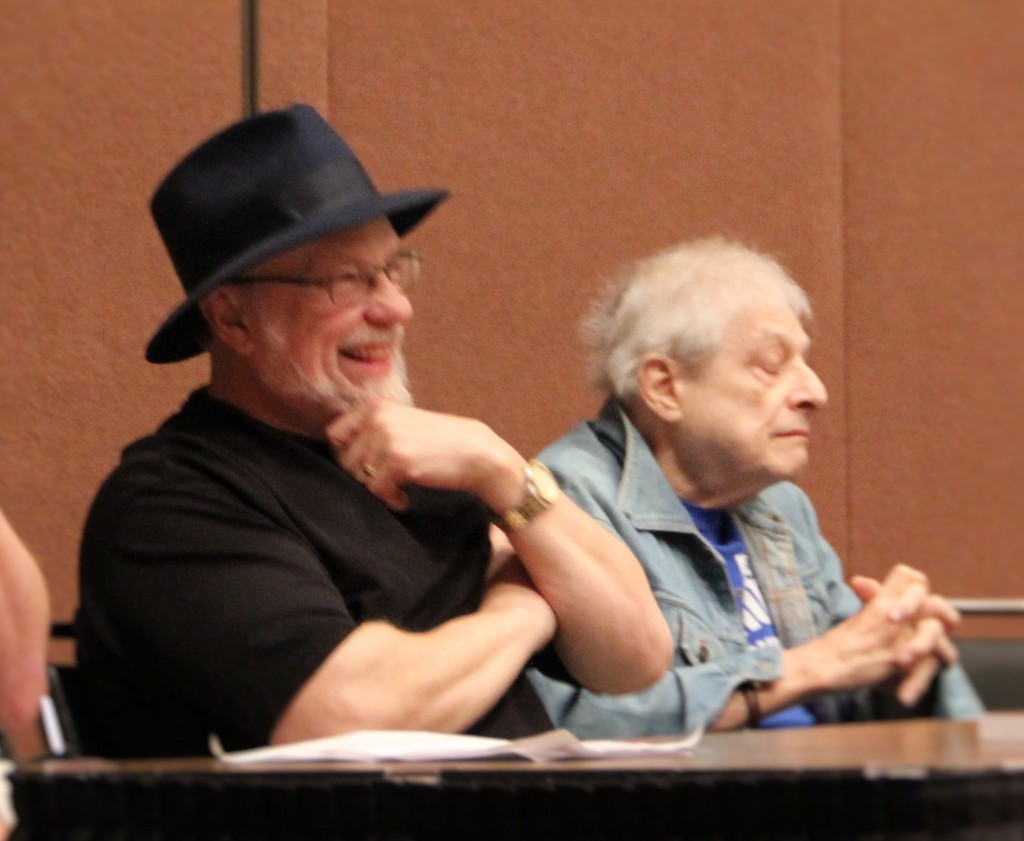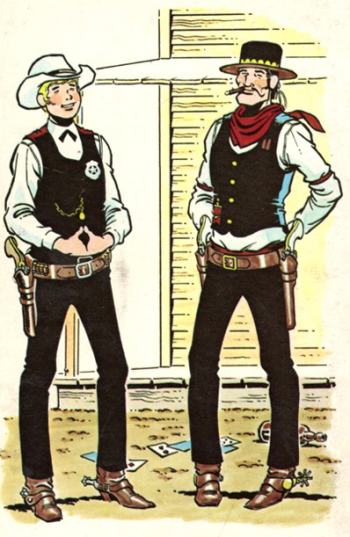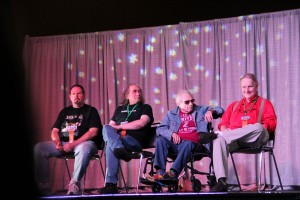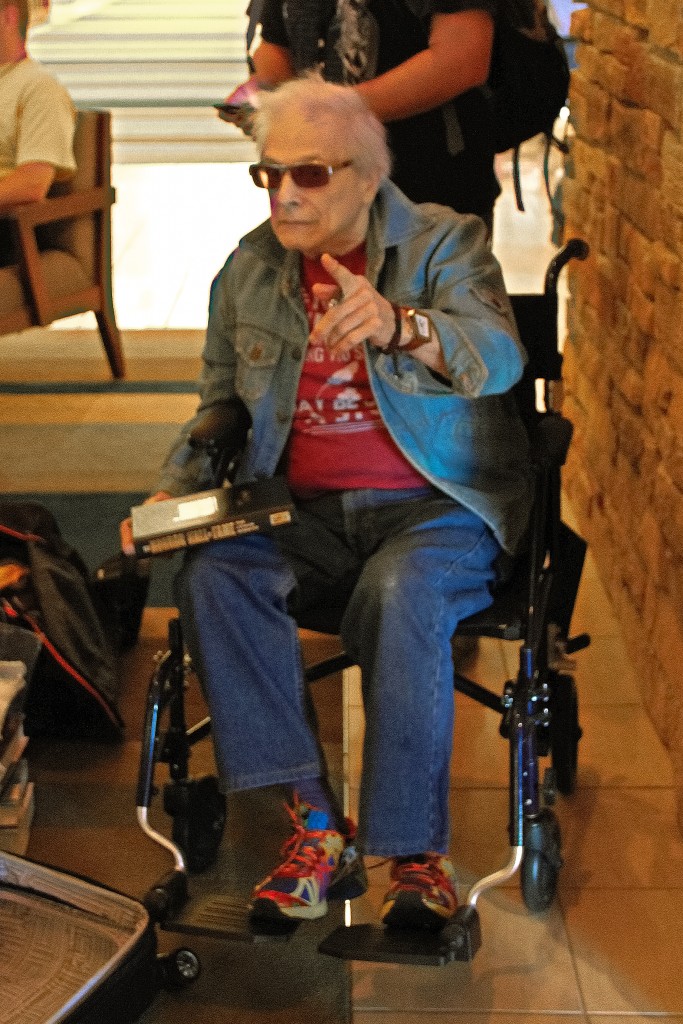What follows is a completely personal, wholly biased view.
On average, I read between four and seven books a month. That’s cover to cover. From time to time I have a month wherein I manage ten to twelve, but that’s getting rarer. Between four and seven is what it comes out to and at that rate I’m reading fifty to eighty books a year.
I put that out there so that what follows may make more sense than the usual kind of argument about taste in reading matter and why I don’t wish to waste time on certain things.
I’m sixty, which means I have maybe fifteen, maybe thirty years left to do the things I want to do, and I’m getting picky about what fills my time. Too much trivial nonsense does simply because that’s the way life is. And it’s hard to break habits made when you were much younger and it felt like time was plentiful. I’m not being morbid, just practical. Trivia has a function. Upon trivia, friendships cement, the culture binds itself together, and the time between important things is bridged with something that at least keeps us engaged.
Anyway, given all this, plus the very important fact that I’ve been reading books (without pictures) since I was eight years old (at least—and I’m not, believe me, being critical of comics, I actively read them till I was 18 or 19 and still consider them worthwhile) and my tastes have…
I was going to say, “my tastes have changed,” and that’s certainly true, but it’s just as if not more accurate to say my tastes have evolved. I still like the same kind of things I did way back, but not in the same form I did then. When I was 12, the Lensmen were the ne plus ultra of fiction, the absolute coolest of the cool. Today? Not so much. But I still love space opera as a form. Only now I want a better example, language pitched to my level or higher, and maybe some subtext and a story that isn’t just about finding the next biggest weapon to defeat the slimy aliens but maybe tells me something interesting about human nature under unique conditions, which means characters that inhabit more than two dimensions. While I can’t get through Triplanetary anymore, I can still read Delany’s Nova or Iain Banks’ Culture novels with pleasure. Why?
No single reason, but a constellation of them resulting in what we start to recognize as serious literature. The fact is, I pick up Embassytown by China Mieville and I have an experience which simply cannot be duplicated by—
Ah, there’s a problem. We verge now on comparisons. And that gets tricky, because I don’t wish to denigrate anyone’s work. I have always tried to address the different pleasures of fiction, top to bottom, without resorting to saying So-and-So is great while Such-and-Such is crap. For one thing, a lot of people may very much like Such-and-Such and by calling it crap I am by definition saying they have bad taste. It becomes elitist in a particularly counterproductive way.
For another, this hasn’t much to do with what one likes. That word covers a lot of territory and means many vague things having to do with pleasure. No one has cause to say anyone’s pleasure is somehow less important because of its position on some presumed scale of relative value.
But that’s not the same as claiming all experiences are of equal merit. All books are not the same and yes, some are better than others. “Like” has little to do with those assessments, though.
A well prepared filet mignon is obviously “better” than a hamburger from a fast food chain. The fact that McDonalds has sold billions upon billions is not an assessment in any way that their burgers are better than the steak you’ll be served at a five-star restaurant. Popularity is not an endorsement of quality.
A rough comparison at best, but I make it to establish the idea that while you may eat more burgers than filet mignons garnished with champignon mushrooms, you know the difference and you also know it’s a question of experience that allows us to recognize the distinction and understand it. You’re going to have a deeper culinary experience with the latter.
Unless you have no taste at all and can’t tell the difference. That’s certainly possible and by the evidence of certain groups would certainly seem the case.
Enough with the culinary analogy, let me get back to choice of reading material. What I do not read any longer has to do with opting for the deeper experience. I read slowly, relative to some, and I don’t have time to tear through mediocre books. I have developed to the point where Doc Smith just doesn’t do it for me any longer. I mean, the ideas are great, the seeds of later pleasures, but the execution is pitched to the bright 12-year-old and eschews any kind of nuance. For one thing, you begin to notice eventually, if you read with any kind of acuity, that while we’re all in the far future, everyone acts and talks as if they lived in 1932 Brooklyn. Even the aliens. If it were satire, I could understand, but it’s not, it’s meant to be taken seriously. And, really, it’s the far future and everyone (even the aliens) is so white.
I want something special. I want my synapses engaged as fully as possible. If I have to do a little work to understand the full substance of a sentence, great, especially if the work pays off exponentially.
Which has resulted in a long, gradual drift away from the slam-bang of what once represented the bulk of my reading choice toward material that causes me to react in ways I find much more satisfying.
Some books require more from a reader. The reader has to rise to the level of the book. Experience teaches us to recognize these books when we find them—and sort them out from those that may be obtuse just for the sake of hiding their lack of anything to say—and experience also gives us the desire to have those experiences. Which, perhaps unfortunately, leaves us unsatisfied with less nutritious fare, fare which once filled out requirements.
This is akin to growing up. You just don’t find the things that fulfilled you as a kid to be all that wonderful as an adult.
Assuming we’ve grown up.
Okay, I am here at the point where I either have to give a concrete example or leave this whole thing a vague, kind of hand-wavy bit of stuff with the message so buried as to be useful only to those of an archaeological bent. Ordinarily, I would not feel I need to do so, but given events and circumstances in my genre of first love—science fiction—maybe I should just bite the bullet and go for it. After all, names have already been named and assertions made and being polite to the point of swallowing meaning serves no useful purpose.
I will not, however, name names. If I do, it will be those who are long dead and whose day is past. Unlike some who have dragged the discourse that is science fiction to the level of a political convention floor fight, I will not point at specific works currently in play in order to say “Here be crap” and make the bones of my argument on the unnecessarily scoured sensibilities of people who toil earnestly at their craft.
Earnestness does not inoculate anyone against doing mediocre work. Nor does it guarantee exemplary work.
What do I mean by mediocre writing?
Writing that exhausts itself by one reading, fails to fulfill the potential of its ideas, and/or rests upon cliché to make the page turn.
Good writing by contrast allows for multiple readings from which deeper meaning and new interpretations can be derived.
Sometimes you can see the difference sentence by sentence. Often scene by scene, chapter by chapter.
When you’re 12 years old, the better writing may leave you baffled, because it is not always straightforward and single-pointed. So no one should feel bad for not getting Joseph Conrad at that age.
I pick Conrad because he wrote rousing adventures. But they are so much more than that, and it’s that so much more that has seen his works continue to be published, read, and appreciated by large audiences. Once you’ve internalized the sea-going thrills and fighting in something like Lord Jim you find that, upon further or more careful reading, there is so much more. And that so much more actually calls into question the heroic æsthetic of the surface read and causes—presumably—a deep reflection on the the meaning of heroism—and cowardice—and the mythic templates we accept that define them.
Boring?
Well, if you’re bored by such contemplations, then stick with action-adventure.
If beautiful sentences bore you or you are blind to them, stick to simple plot-thickening prose.
If you are not emotionally moved in ways other than by pure adrenalization, then stick to the slam-bang thrills and avoid anything that talks about the soul in multiple ways.
(If you can read Dante’s Inferno and believe that it has anything to do with the afterlife, then stick to work more facile and less steeped in metaphor. You will do less disservice to Dante and perhaps yourself.)
In short, if a sentence like “It was strange that even sex, the source of so much solace, delight, and joy for so many years, could overnight become an unknown territory where he must tread carefully and know his ignorance; yet it was so*” reads like gibberish, seems pointless, or causes the kind of reaction that refuses to allow for the possibility that more is going on here than simply your inability to decode meaning and apprehend the layers involved, then you may have reached your limit with sentences like “What he really needed was a session with a pleasure unit in order to clear his mind for the ordeal ahead.” If you can’t understand why the former sentence is a richer text, revelatory of character in ways that the latter sentence simply not only fails to be but in some ways actively resists being, then—
But I border now on insult. In light of the current kerfluffle going on in the field, it’s hard not to, though. The essential nature of science fiction is being challenged, all in the name of what appears to be a petty rejection of message. As if science fiction has not always been message fiction.
In terms of plot and idea, if calling into question the basic assumptions by which civilization, culture, and the very lives we lead promises to be an impenetrable drudge, then I have to wonder why you claim to like science fiction at all. Because that’s what it’s all about, dislodging the reader from cozy assumptions of self-justified rightness. And no, stories wherein humanity must wage war against an alien race in order to preserve an identity which goes largely unquestioned do not represent the chief benefit of the form. The physiognomy and bloodlust of the aliens is exciting for only a brief time if there is nothing more to the story.
Yes, I’m indulging a bit of elitism here. I have nothing against well-done action stories. I read one recently that offered, or at least promised, a nice twist on the formula, but then failed to deliver and turned into a pat good-guys-cleverly-defeating-alien-menace-with-cool-explosions story. I enjoyed the ride but will never read that book again.
And that’s okay. It was even well-written in terms of character, exposition, pacing. It’s not a question of condemning things just because they aren’t Dostoevsky.
But using the author of Crime and Punishment as an example, to argue that work deserves an award precisely because it isn’t Dostoevsky is a seriously flawed idea, especially when the award in question is supposedly for the Best of Field. We give awards to the Dostoevsky’s in order to set bars and celebrate potential, not congratulate ourselves for reveling in mediocrity. To insist that the better work is undeserving because it does things differently from the usual is a statement of adolescent resentment.
However, that doesn’t seem to be the source of the spleen. It’s not that SF is message fiction, but the message being conveyed that has sparked all this contention—and who is delivering it.
It can be asserted that overall, since 1926, a good deal of SF, especially of the planetary romance and interstellar adventure variety, has been, in subtext if not overtly, imperialist. Brave Earthmen venturing forth to conquer and pacify an alien and maleficent universe. By default if nothing else, most of those high principled adventurers have been white males. That aspect wasn’t the main point of the choices made, just the default assumption based on current standards of perceived merit. John W. Campbell, jr. was an unapologetic champion of this ethic, so much so that he eventually annoyed many of his best writers with his chauvinism. Nevertheless, the model stuck, because it allowed for the continual generation of really cool stories.
Came a time, though, when we finally became a bit more introspective and realized how parochial much of it was, how chauvinistic, and, yes, how racist much of it was. So, like any healthy art form, stories began appearing that questioned these assumptions.
And the questioning resulted in a lot of really cool stories.
It may be that some folks still like the old ideas and forms so much and, coupled with a weariness of continual reassessment and moral reevaluation, yearn nostalgically for days of unquestioned heroic virtue, that the current noise in opposition to what has been derogatorily labeled as the work of Social Justice Warriors is just their way of stamping their feet and demanding unequivocal action adventure of the so-called Golden Age variety. From some of the sales numbers I’ve seen, there is a healthy market for such stories.
Speaking personally, though, please don’t try to tell me work built guilelessly on discredited values and outgrown sentiment is award worthy—and by that I mean exemplary of the best, indicative of the future, and representative of the limits of possibility.
I end this now because I am coming perilously close to venting spleen and getting personal. I’ve watched this advent over the Hugo Awards with dismay and bewilderment. There has been too much doubling down on false pretense and too much empty fury and not enough genuine debate over what is actually at issue in terms of the work. Those who have brought this to fruition have placed many of their colleagues in unfortunate situations for no good purpose, or at least for purposes poorly stated if not seriously misrepresented. If, by their lights, the “wrong” work wins a rocket this year and they continue to erupt in fury over a perceived injustice in the direction of the field, then in my opinion they seriously misunderstand the nature of the endeavor of which they claim a share.
In any event, I have looked at the work at issue and, from a purely personal vantage, like so much else in what is too little time to spare, I have to say, I just don’t read that kind of stuff anymore.
_____________________________________________________________________
*Okay, I’ll name one name. That sentence is from The Dispossessed by Ursula K. Le Guin, whose works I suspect, were they being written and published today would bring down the disdain of those who have made loud and gaseous cause over “social justice” fiction.










